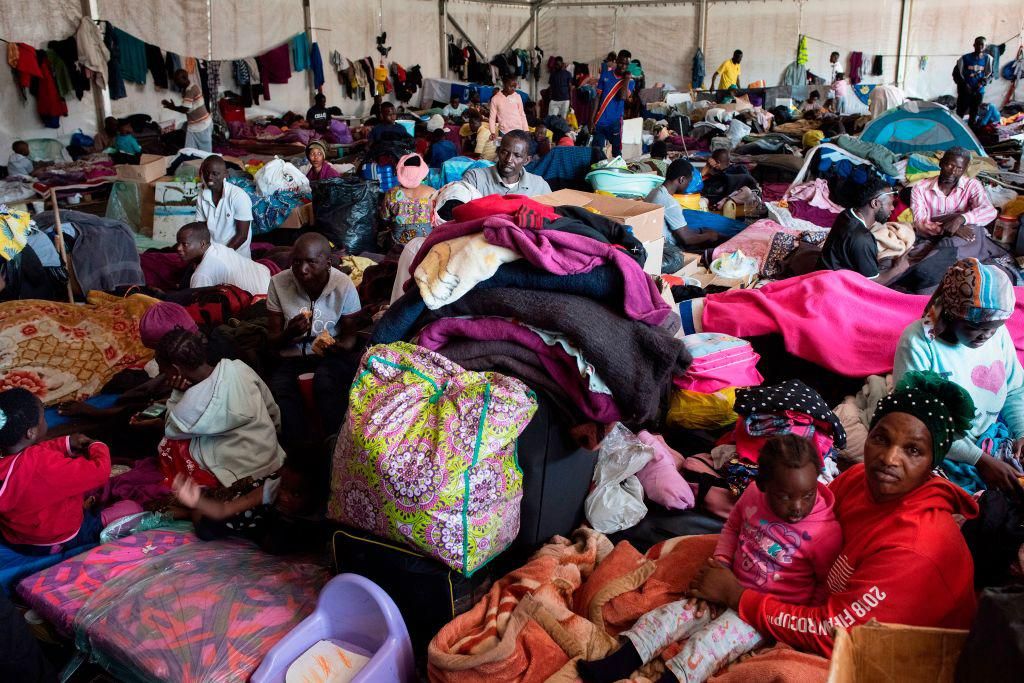South Africa Set to Evict Refugees in Cape Town City
South African authorities will evict at least 1600 protesting refugees and asylum seekers after giving them the option of either repatriating or re-integrating into local communities.
The South African government is set to end the stalemate between them and refugees residing in Cape Town this Saturday. At least 1600 refugees are being housed in two temporary shelters in Paint City, Bellville and the Wingfield Military Base in Kensington. According to South African Home Affairs Minister, Aaron Motsoaledi, the temporary shelters will be dismantled soon with those who are currently residing there having the option of either being repatriated or re-integrated into local communities.
READ: In Her Poem "How Many More?" Lula Saleh Explores the Hardships Faced by Refugees
Motsoaledi describes the options available to the protesters as follows:
"If they take the option of resettling in communities where they came from, the United Nations will pay for them three months' rental wherever they find accommodation. In addition, the United Nations will supply them, wherever they have settled, with food for a period of three months while they are finding their feet."
Refugees and asylum seekers of varying nationalities have been protesting in Cape Town since 2019. Their demands have primarily centred on resettlement in Canada as a result of continued xenophobic violence in South Africa and challenges in acquiring the required documentation from Home Affairs. However, the United Nations High Commissioner for Refugees (UNHCR) has denied their demands citing that they contravene international guidelines. Thus, the alternatives of repatriation and re-integration have been tabled. The UNHCR has also called for the dismantling of the temporary shelters citing that "camps create a false beacon of hope," according to eNCA. At least 300 have already been voluntarily repatriated with an additional 23 deported.
Xenophobia in South Africa is a recurring challenge which has led to the loss of life, displacement and straining of political relations. Back in 2019, just a week after xenophobic attacks had erupted in Pretoria and two months after Nigerians were attacked in Hillbrow, Johannesburg, the country was embroiled in yet another spate of xenophobic violence.
- Why Are Oromo Refugees Getting Sent Back to Ethiopia? - OkayAfrica ›
- In Her Poem "How Many More?" Lula Saleh Explores the Hardships ... ›
- Spoken Word In Kigali Reveals The Deep Connection Between ... ›
- Clemantine Wamariya's 'The Girl Who Smiled Beads' Is a Story Of ... ›
- Liberian MC & Producer Shadow On Making Music After The Ebola ... ›
- They Fled Burundi. Now They're Opening Detroit's First East African ... ›
- South Africa's Xenophobic Attacks Target Somali Nationals - OkayAfrica ›
